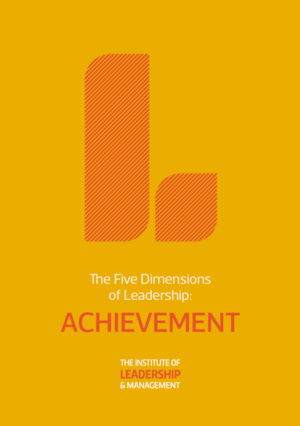Why achievement?
Components
The Healthy Workplace
The Healthy Workplace is a component of Achievement. Within The Healthy Workplace, we also cover key topics including Spotlight on Stress Management, Spotlight on Wellbeing and Mental Health and Spotlight on Work/Life Balance.
Managing Performance
Managing Performance is a component of Achievement. Within Managing Performance, we also cover key topics including Spotlight on Performance Review, Spotlight on Managing Underperformance and Spotlight on Setting Objectives.
Resilience
Resilience is a component of Achievement. Within Resilience, we also cover key topics including Spotlight on Grit, Spotlight on Crisis Management and Spotlight on Positive Mindset.
Adaptability
Adaptability is a component of Achievement. Within Adaptability, we also cover key topics including Spotlight on Adapting your Style, Spotlight on YUCA and Spotlight on Distributed Leadership.
Mentoring
Mentoring is a component of Achievement. Within Mentoring, we also cover key topics including Spotlight on How to be a Good Mentor, Spotlight on How to be a Good Mentee and Spotlight on Mentoring Schemes.
Delivering Outcomes
Delivering Outcomes is a component of Achievement. Within Delivering Outcomes, we also cover key topics including Spotlight on Outputs not Inputs, Spotlight on Measurement and ROI and Spotlight on Mindfulness.
Understanding HR
Understanding HR is a component of Achievement. Within Understanding HR, we also cover key topics including Spotlight on Recruitment and Onboarding, Spotlight on Exit Management and Spotlight on HR Procedures.
Coaching
Coaching is a component of Achievement. Within Coaching, we also cover key topics including Spotlight on What is Coaching, Spotlight on The Coaching Context and Spotlight on Coaching Skills and Techniques.
Sustaining Growth
Sustaining Growth is a component of Achievement. Within Sustaining Growth, we also cover key topics including Spotlight on Environmental Sustainability, Spotlight on Know your Market and Spotlight on Know your Suppliers.
Developing Talent
Developing Talent is a component of Achievement. Within Developing Talent, we also cover key topics including Spotlight on Talent Spotting, Spotlight on Succession Planning and Spotlight on Rewarding Talent.











